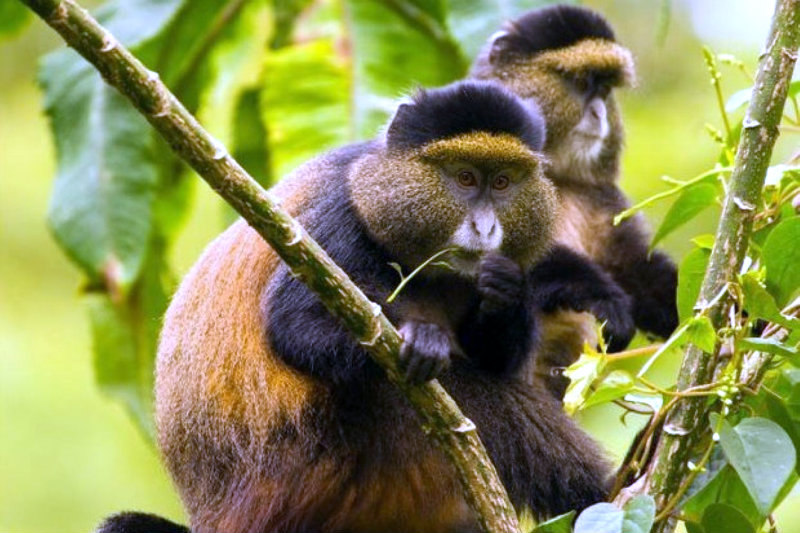
In the lush forests of Africa, a unique adventure awaits those who seek to encounter one of our closest relatives in the animal kingdom: the chimpanzee. Trekking tours that offer close encounters with these fascinating creatures provide not only an exhilarating experience but also an opportunity for profound connection and understanding of our shared evolutionary heritage. In this exploration, we delve into the captivating world of chimpanzee trekking tours, uncovering the essence of the encounters and their significance in promoting conservation, education, and ecotourism.
Understanding the Chimpanzee
Chimpanzees, scientifically known as *Pan troglodytes*, are highly intelligent and social primates native to the forests of Central and West Africa. Sharing over 98% of their DNA with humans, chimpanzees exhibit complex behaviors, including tool use, communication through vocalizations and gestures, and forming intricate social structures within their communities. Their resemblance to humans in behavior and genetic makeup has long captivated scientists and enthusiasts alike, making encounters with these primates a profound and enlightening experience.
The Journey Begins: Trekking Into the Wild
Embarking on a chimpanzee trekking tour is akin to embarking on a journey into the heart of nature's wonder. Visitors often find themselves immersed in lush, verdant forests, enveloped by the sights and sounds of the natural world. Guided by experienced trackers and guides, adventurers traverse winding trails, crossing streams and navigating dense vegetation in pursuit of a glimpse into the lives of wild chimpanzee communities.
The Thrill of Encounter: Close Encounters with Chimpanzees
The pinnacle of the trekking experience lies in the encounters with wild chimpanzees in their natural habitat. As travelers approach the vicinity of chimpanzee communities, anticipation builds, and every rustle of leaves or distant call heightens the sense of excitement. Then, amidst the foliage, a glimpse of movement reveals the presence of these majestic creatures.
Observing chimpanzees in the wild offers a profound insight into their behavior and social dynamics. From playful juveniles swinging through the canopy to wise elders grooming one another in quiet camaraderie, each interaction provides a window into the complexities of chimpanzee society. Witnessing their expressions, gestures, and interactions fosters a deep appreciation for their intelligence, empathy, and familial bonds.
Conservation and Education: The Impact of Chimpanzee Trekking Tours
Beyond the thrill of the encounter, chimpanzee trekking tours play a crucial role in conservation efforts and environmental education. By promoting sustainable tourism practices, these tours generate vital revenue for local communities and incentivize the preservation of natural habitats. Additionally, they raise awareness about the plight of chimpanzees and the urgent need to protect their dwindling populations from threats such as habitat loss, poaching, and disease.
Chimpanzee trekking tours also serve as immersive educational experiences, offering participants the opportunity to learn about primate behavior, ecology, and conservation from knowledgeable guides and researchers. Through guided discussions and interpretive sessions, visitors gain a deeper understanding of the interconnectedness of all living beings and the importance of biodiversity conservation for the well-being of our planet.
Ethical Considerations and Responsible Tourism
While the benefits of chimpanzee trekking tours are undeniable, it is essential to approach such experiences with mindfulness and respect for both the animals and their habitats. Responsible tourism practices, such as limiting group sizes, maintaining a respectful distance from wildlife, and adhering to strict codes of conduct, are paramount to minimizing disturbances and ensuring the well-being of chimpanzee communities.
Furthermore, fostering positive relationships between local communities and conservation organizations is fundamental to the long-term success of ecotourism initiatives. By involving local stakeholders in decision-making processes and supporting sustainable development projects, chimpanzee trekking tours can contribute to the empowerment and economic prosperity of indigenous populations while safeguarding natural resources for future generations.
Conclusion: A Journey of Discovery and Connection
In the realm of nature tourism, few experiences rival the thrill of encountering wild chimpanzees in their native habitat. Beyond the adrenaline rush of the chase lies a deeper journey of discovery, connection, and appreciation for the wonders of the natural world. Chimpanzee trekking tours offer a rare opportunity to witness the beauty and complexity of life in the forests of Africa while contributing to conservation efforts and fostering environmental stewardship.
As we navigate an increasingly interconnected world, the importance of preserving our planet's biodiversity and cultural heritage becomes more apparent than ever. Through responsible and ethical tourism practices, we can forge meaningful connections with nature, support local communities, and inspire future generations to become ambassadors for conservation and sustainability. In the end, the true thrill of encounter lies not only in the fleeting moments of proximity with chimpanzees but in the enduring impact of our collective efforts to protect and preserve the world we share.




